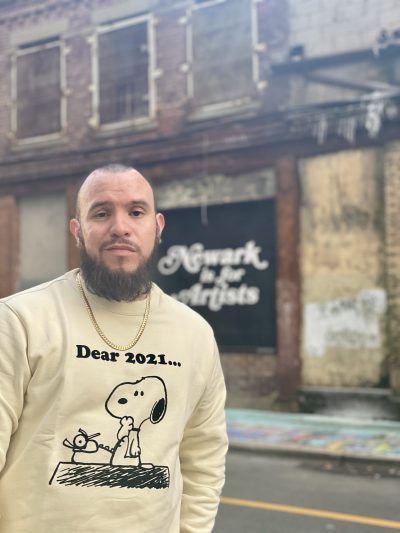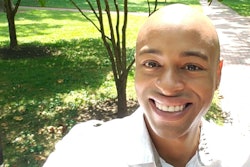I currently live with anxiety and depression. I have lived with mental health concerns for over ten years, and I am still ok. Before the COVID-19 pandemic, I would not have been able to publicly admit the first line of this article because of feelings of embarrassment and shame. However, by acknowledging my mental health concerns, I know that I am challenging stereotypes as a scholar-practitioner and saving a group of peers, friends, and family by just saying my truth.
As an undergrad, I never visited the counseling and psychological services office at my university. In fact, I did not know what counseling and psychological services were. I was raised in a small tenement apartment in New York City by Spanish-speaking parents who never knew the importance of mental health. Mamí (mom) and Papí (dad) did their best to educate my siblings and me. Still, discussions about our feelings or vulnerabilities were tucked away, like the foldable TV tables that we ate dinner on every night. Thus, without knowing, they led with a deficiency about the importance of mental health. They didn’t know what they didn’t know, and suffering in silence simply became the norm.
 Gary Santos Mendoza
Gary Santos MendozaAfter experiencing my first emotional breakdown a decade ago, I now reflect on my personal experiences and reality with mental health concerns and use these experiences as a lens to make meaning to help inform my engagement with students. While living with mental health concerns, I survived being first-generation, Queer, and Latino from New York City. Those multiple identities have helped me to become the director of a college diversity, equity, and inclusion center and have put me on the track to earning a Ph.D. Achieving my goals, however, came with internalized self-pressure to succeed. COVID-19 brought these pressures to the fore and forced me to confront how I had neglected my personal mental health and well-being. The death of a well-known member of the Black Queer community due to mental health challenges, was a significant turning point that forced me to grapple with my own mortality.
The topic of mental illness is common. The Centers for Disease Control and Prevention found an increase in worsened mental health conditions in adults as a result of the pandemic. As educators, it is important that we imagine how Black and brown students are impacted by the pandemic; how they are succeeding academically in a space that historically didn’t accept them when colleges and universities were first were established? How has their resilience led them to success in a society that disrespects Black and brown bodies? What happens if students don’t receive the support needed and feel alone?
Today, the topic of mental illness is gaining attention, thanks to celebrities like Naomi Osaka, Taraji P. Henson, Tamar Braxton and Charlamagne Tha God. In sharing their mental health struggles, they have helped individuals understand that it is okay not to be “strong” 100% of the time. Within the mantra of “in loco parentis” (in the place of a parent), we, as educators, have to invest in our students’ mental health. This means we owe it to ourselves to do the same.
For me, it was first admitting that something was wrong. Then, I found a therapist through counseling and psychological services, a similar resource that we practitioners may have recommended to our students across the years. For our students, it’s a valuable service that is covered by the annual fees that they pay to attend our institutions. My journey also involved deciding to face stigma and take mental health medication in the process. Sustaining a routine was also critical for me. Physical fitness and walking outside during the day has allowed me to reflect on the present in order to stay the course. Just like the African proverb says, “it takes a village to raise a child,” my chosen family and their support uplifted me on this journey.
The welcoming back of our students and their mental health concerns must be part of our new normal. Educators must remember, however, that they too must take time for themselves as well.
Gary Santos Mendoza is a doctoral candidate in Educational Leadership and Research Methodology at Florida Atlantic University and the director of the Intercultural Resource Center at Rutgers University-Newark.















